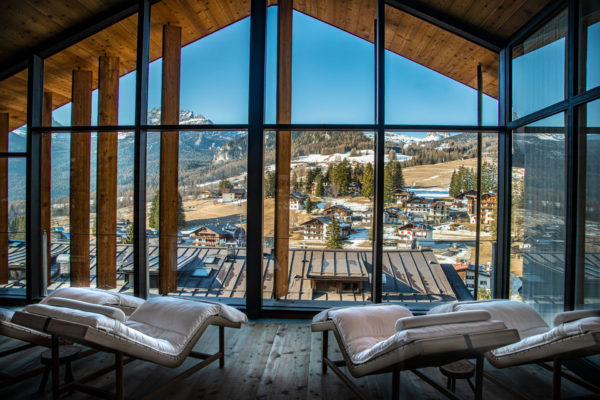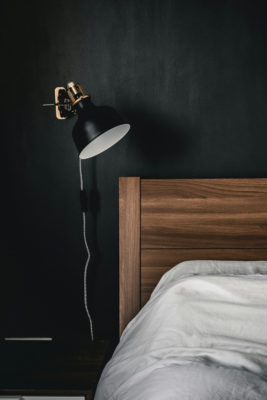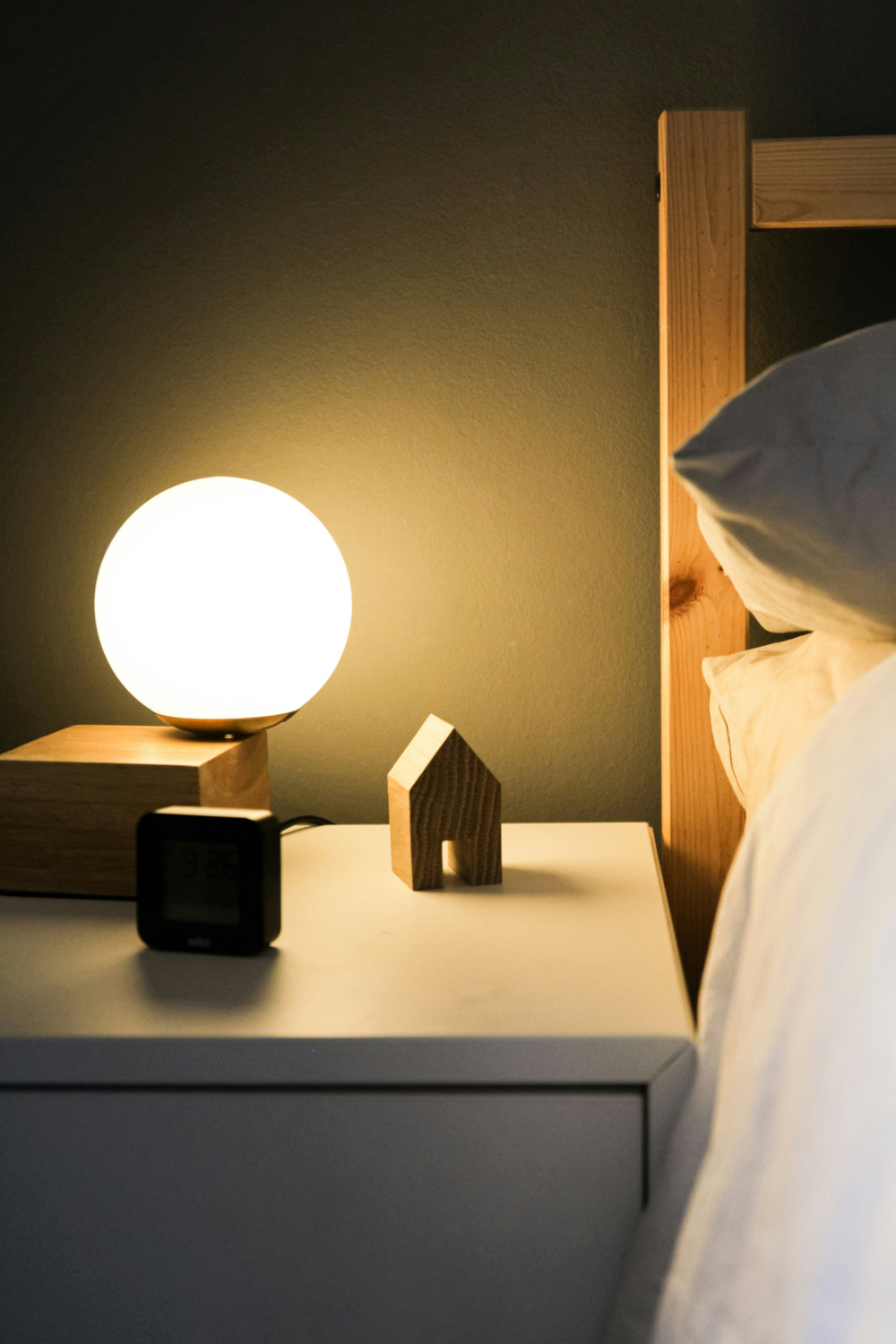
Ask The Expert: How To Get A Good Night’s Sleep
By
11 months ago
Nighttime tips you won't want to sleep on
Stuck in a rut when it comes to bedtime? We know getting you head down for the night can get tough at times, but there are ways to ensure you get good quality sleep no matter your routine. To help you get started, we’ve enlisted the help of GP and sleep specialist Dr Sundeep Chohan, who reveals the secret to a good night’s rest.
A Guide To Good Sleep (& How To Get It)
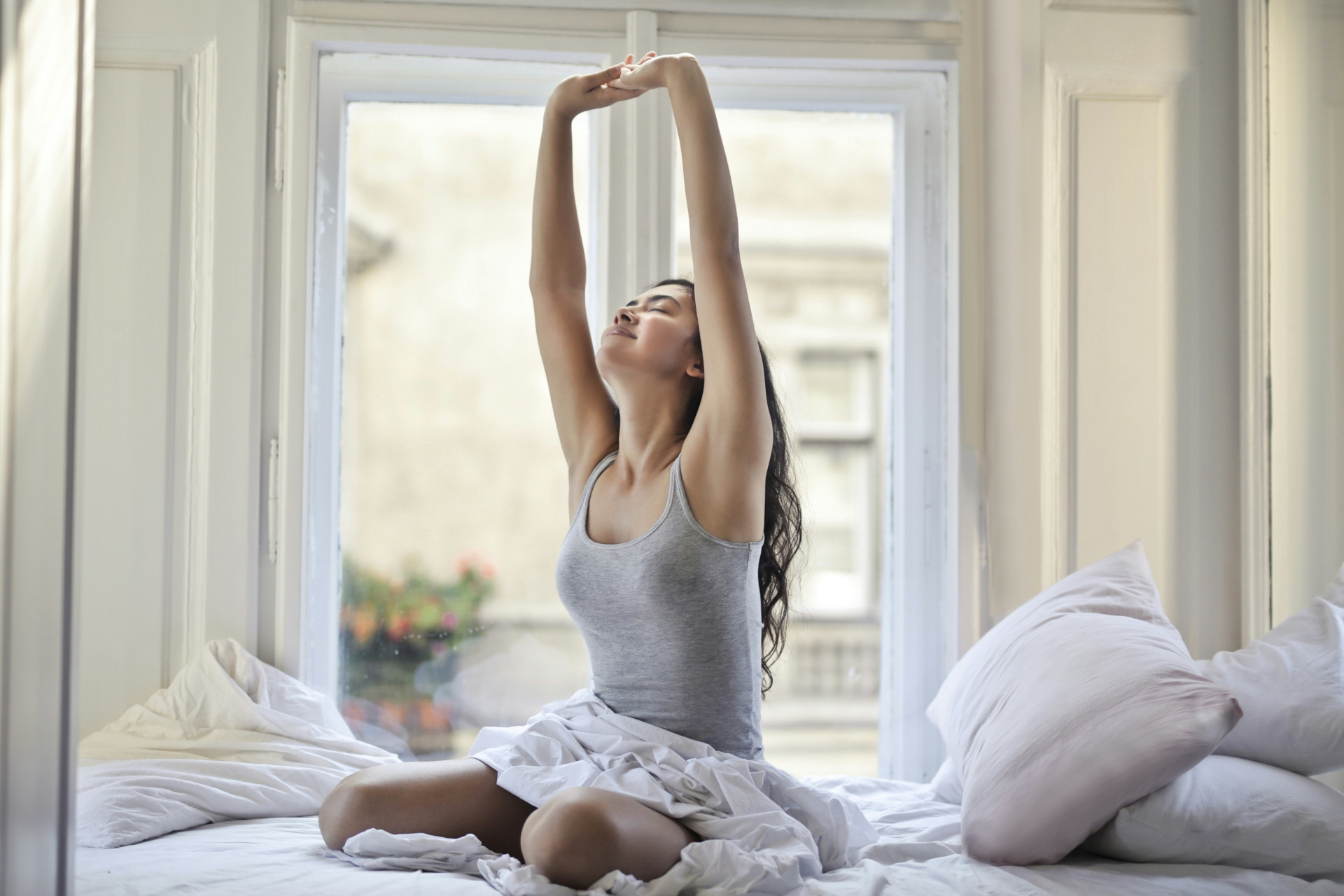
(c) Bruce Mars, Unsplash
Why do we sleep? What’s the function behind it?
For daily psychological and physiological reset and recovery. Sleep is important in every aspect of our wellbeing: from maintaining mental health to processing memories, from reducing the oxidative stress to regulating important hormones, from building our immune system to enhancing fertility.
How important is a good night’s sleep to our overall health?
Good sleep is the cornerstone of good mental and physical health. We spend about a third of our lives asleep but it strongly impacts the quality of the remaining two thirds. While everyone has an occasional bad night, long term sleep issues are linked to a range of physical medical conditions including obesity, diabetes, hypertension and cardiovascular disease as well as mental health conditions like depression, increased anxiety, substance misuse and even increased risk of suicide.
How many hours of sleep do we need each night?
There is no right number as it depends on factors like your age, gender, genetics occupation, sociocultural influences and even how much physical work or exercise you have done during the day. Around seven to eight hours would be sufficient for most, but there are people who only sleep for four hours and still function as normal. The easiest way to work what is right for you is to see which amount enables you to function normally without resorting to lots of caffeine to keep you going. Having said that, Napoleon is said to have needed at least six hours, while Einstein needed 10 hours. Dakota Johnson also recently made the news when she said she needs 14 hours a night. The easiest way to work what is right for you is to see what amount enables you to function normally without resorting to lots of caffeine to keep you going.
Do women need more sleep than men?
While the research does indeed show women in general need more sleep than men, it is only by a few minutes extra. The reason women may spend longer in bed, however, is more complicated. For example, the sleep wake cycle is heavily influenced by hormones, so fluctuations and symptoms with periods, pregnancy and eventually menopause all interfere with the quality of sleep leading to longer periods in bed to catch up. Women are also 40 percent more likely to suffer from insomnia and have higher rates of depression and anxiety, two conditions which also impact sleep quality and driving the need for longer sleep.
Doyou burn calories when sleeping?
There is no set number as it depends on variables such as your age, gender weight, height, fitness levels and the quality of sleep you get – but as a rough rule for adults it will normally be between 40 to 80 calories an hour.
What are the different types of sleep?
There are four stage of sleep. Stages one to three are non-rapid eye-movement (NREM), and the final is rapid eye-movement (REM); after, you head back into stage one or two, and then the cycle continues. A typical cycle lasts between 90 and 120 minutes and most people have four to six cycles a night.
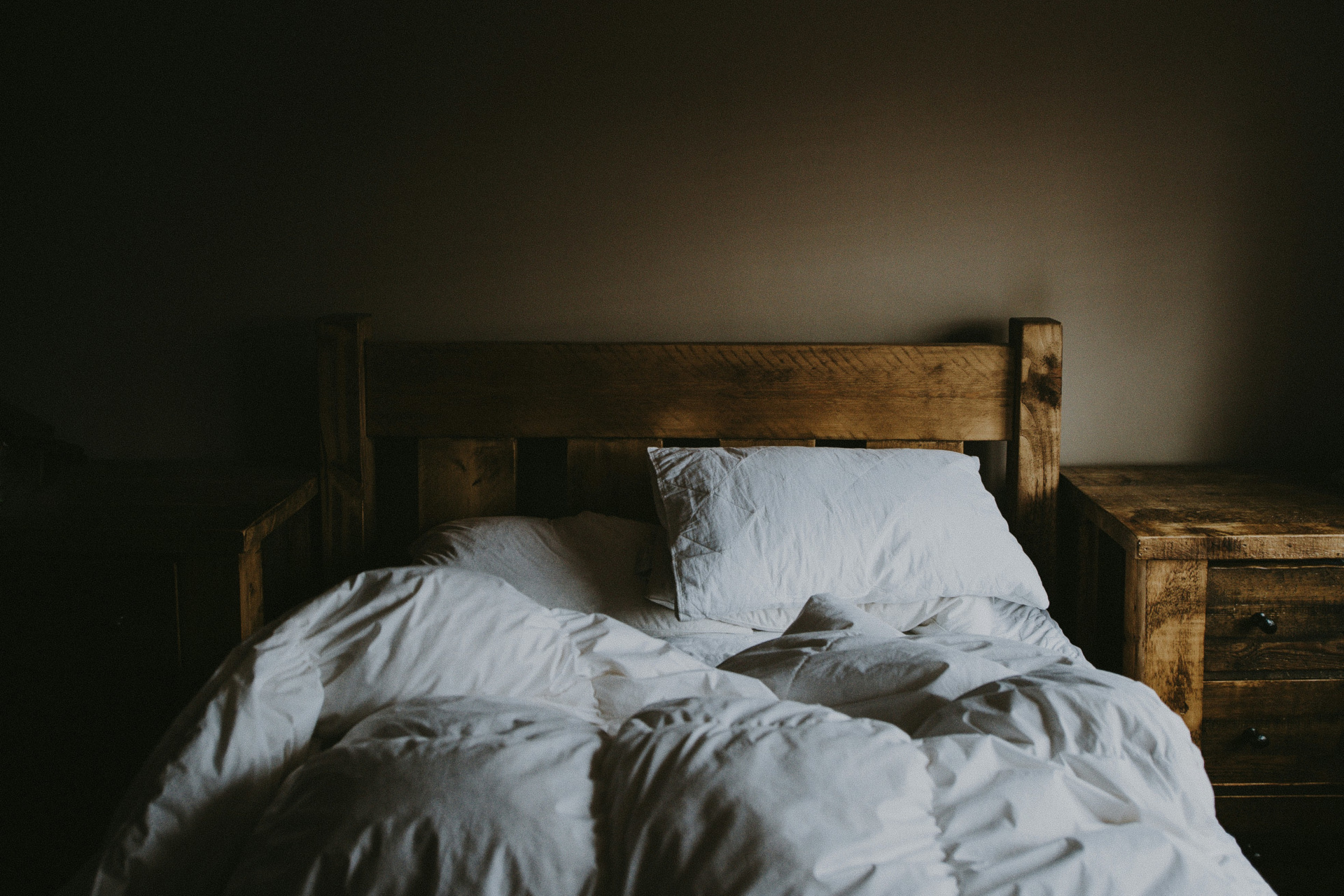
(c) Annie Spratt, Unsplash
How much NREM and REM sleep do we need? Do we need one more than the other?
The amount and type we need is controlled by the body and varies at different timers of our life. While we only spend a few minutes in stage one, nearly half of our sleep time is in stage two as this is where we process the memories of the day. We spend about 75 percent of our time in NREM, which is when the physical body heals and repairs itself and we boost our immune and lymphatic systems. REM makes up the remaining 25 percent of sleep time and is important for our mental health, learning and cognitive functioning. The cycles vary according to the time of night and external factors like alcohol use. You need to have plenty of stage three sleep to feel refreshed in the morning, otherwise no matter how long you sleep you will feel tired and drained.
What causes a lack of deep sleep? Are there ways to increase our deep sleep?
There are a lot of variables which can impact how well or deeply you sleep. Some are within our control such as napping, use of substances such as caffeine or alcohol, room temperature, a poor sleep environment with lots of noise and light and even eating dark chocolate late at night. Other variables may be less easy to control or may need medical guidance or treatments such as shift working, travel across time zones, side effects from medications, medical conditions such as restless legs or sleep apnoea. There’s also the ageing process, which includes hormonal changes caused by events like the menopause.
The best way to increase the amount of deep sleep you get is by improving your sleep environment and sleep hygiene habits and addressing any medical issues.
Why do some of us feel so sleepy around 3pm or 4pm, but then wide awake by the time we actually need to go to bed?
This is partly due to our own physiology, with the circadian rhythm working against us during the afternoon when it signals a period of rest, but other factors such as heavy, carbohydrate-rich meals at lunch, high stress levels, the morning caffeine starting to break down at the same time as your adenosine has been rising, and poor sleep from the night before can all contribute.
As for feeling wide awake at bedtime, this could be related to a condition we call learned arousal, where not sleeping in your bed has become a firmly fixed belief after a long period of poor sleep so seeing the bed triggers you. Sometimes it depends on if we just ate, the bedroom being a stimulating environment with games or TV instead of a place to rest, medical issues like restless legs, alcohol use or high levels of stress and anxiety leading to ruminating thoughts now that you have downtime to think about the day’s problems.
How has social media impacted our understanding of sleep?
Unfortunately, little training is still given about sleep disorders to doctors at different stages of their careers. This knowledge vacuum means doctors rarely discuss sleep with patients, or know how to manage their issues effectively, so patients gravitate towards social media. I have noticed a lot of commercial trends these days promoting herbal aids or cocktails of chemical supplements promising to improve your sleep without clear evidence. If patients are desperate and we aren’t meeting their needs, I guess it is inevitable they will try them. The strangest sleep myth I want to debunk is that we swallow spiders in our sleep – I am not sure where it started, but it has been around for decades.
Speaking of trends – does magnesium help you sleep?
Anecdotally, I have had a number of patients who have started taking magnesium and it has helped them. There is good quality research to support that higher levels of magnesium is associated with better quality, both longer and deeper, sleep.
Any tips on getting to sleep fast? What should we do when we can’t sleep?
The US military uses a technique called Progressive Muscle Relaxation so that its troops can rapidly induce sleep. Some of my patients have also found audiobooks to be helpful and there is currently a movement towards watching or listening to ASMR videos online, which seems to be becoming very popular.
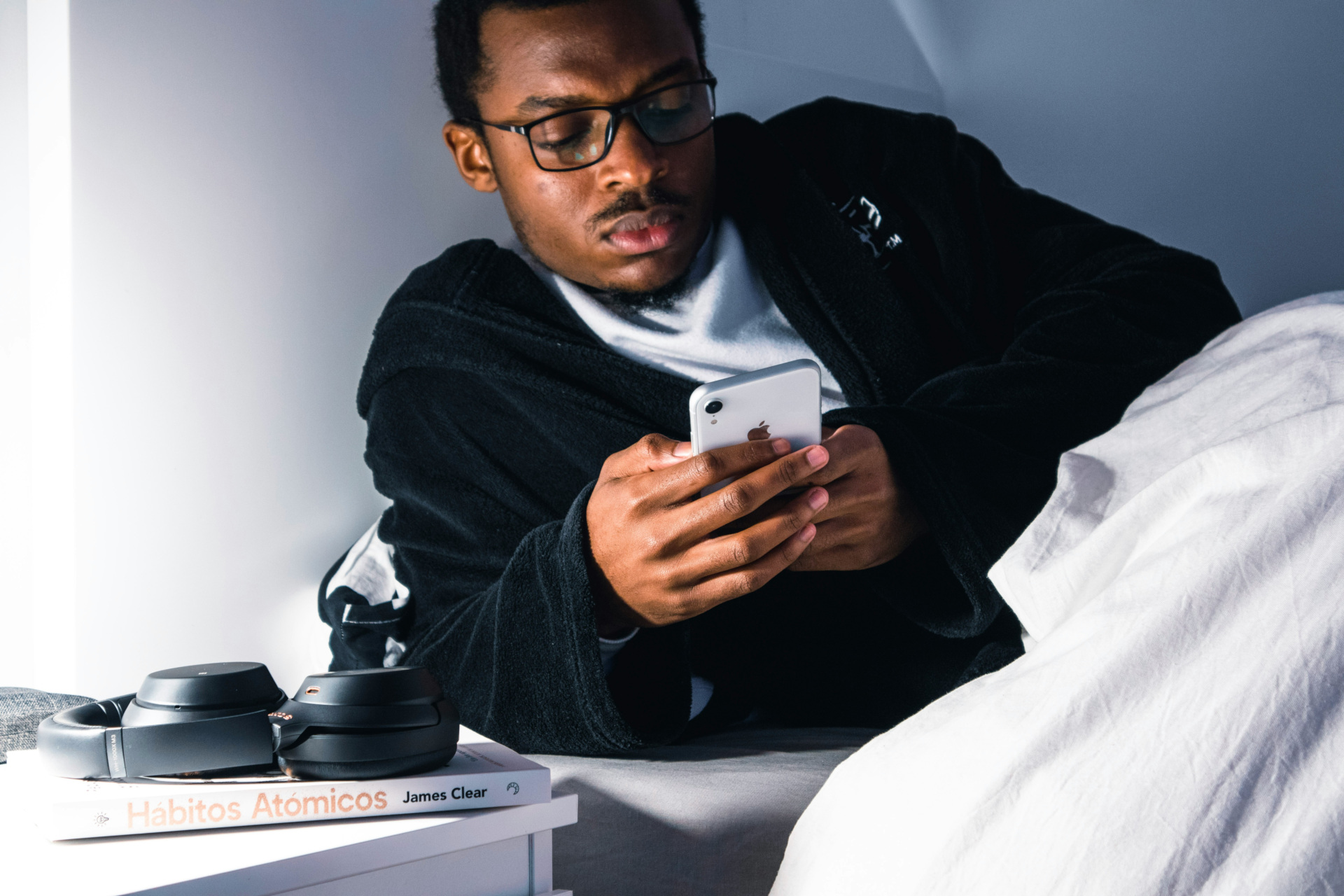
(c) Nubelson Fernandes, Unsplash
Any tips for fixing an irregular sleep schedule?
One method that is quite popular at the moment is the 10-3-2-1-0 rule, which helps you remember what activities to avoid at certain times to promote better sleep:
- No caffeine for 10 hours before bed.
- No alcohol 3 hours before bed.
- No work activities for 2 hours before bed.
- No more screen time 1 hour before bed.
- Hit the snooze button 0 times and get up with your alarm, so you wake each day at the same time.
Are there any changes to our routine we can take onboard to make falling asleep at night easier?
Understanding and working with your body’s circadian rhythm during the day and evening sets the right chain of physiological events to get you ready for sleep. Some of the things you can do to help include:
- Having a regular sleep routine and bedtime, and get up at the same time each day.
- Opening your curtains as soon as you wake up and take in daylight straightaway to trigger the blue light reflex in your brain; this releases cortisol and wakes you up properly.
- Avoiding late night exercise classes or sports.
- Avoiding or reducing alcohol, caffeine and stimulants in the evening.
- Dealing with any issues in the bedroom environment, such bright lights, and make sure the room temperature is right for you.
- Avoiding blue light for about two hours before bed – so no laptop or electronic devices in the bedroom.
About The Expert
Dr Sundeep Chohan is a GP with special interest in mental health, addiction medicine and sleep disorders. Over the years he has treated a whole range of sleep disorders, from nightmares and night terrors to insomnia and parasomnias as well as medical conditions impacting sleep. You can find out more about Dr Chohan and his work at drsundeepchohan.com
Featured image: Beazy, Unsplash









